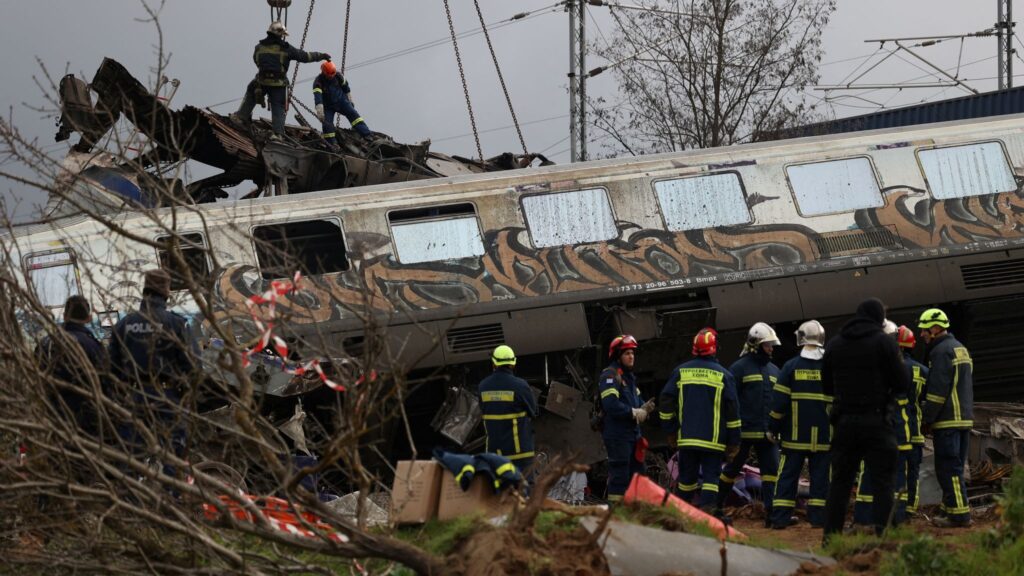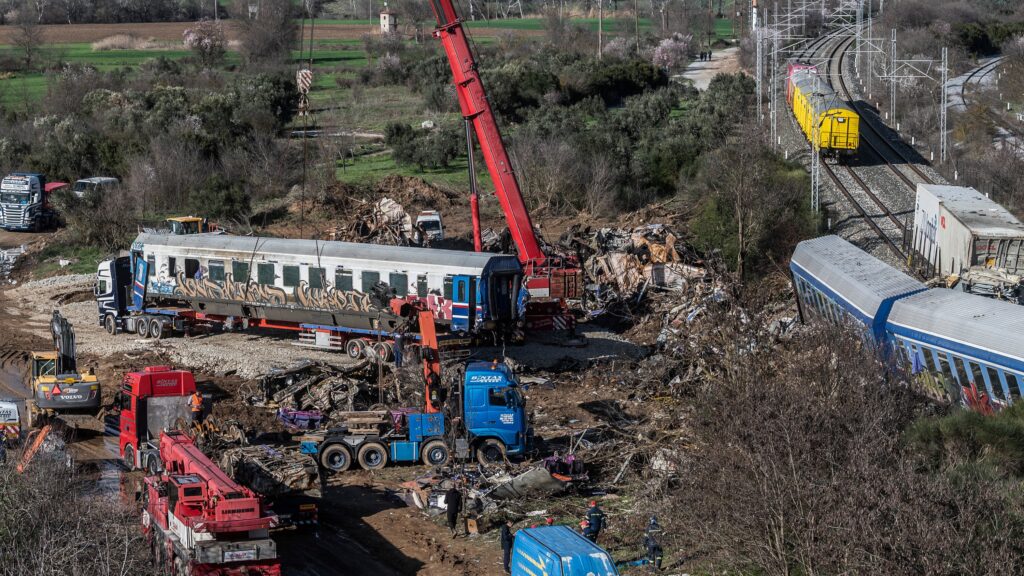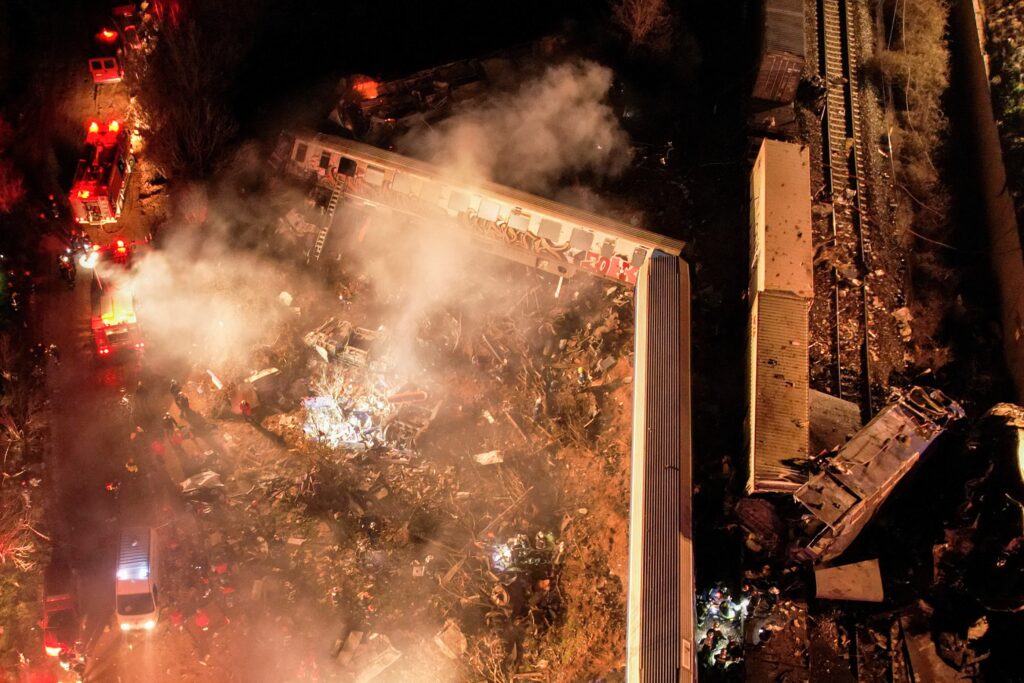The European Union Railway Agency “repeatedly warned” Greece on multiple occasions over the past few years that there were major safety concerns, according to the organisation’s Executive-Director who spoke to Euronews following an accident last week that killed 57 people.
Executive-Director of the EU Railway Agency, Josef Doppelbauer, said that Greece did not react in time to secure its railway system, despite its warning. Even its latest report in 2022 revealed a gloomy picture.
“During the last few years, we have always seen that Greece has ranked amongst the ‘bad pupils’,” he explained. “So, with a rather low performance in terms of safety — safety (is) measured in the number of fatal accidents in comparison to the length of the network and the number of passenger kilometres.”
“We have also found an issue with the national investigation body because we have never received any report of an investigation,” Doppelbauer added.

Since 2014, the European Commission has given Greece €700 million to modernise the railway system and plans to fund it with another €130 million through the bloc’s Recovery and Resilience Fund, part of its post-pandemic rebuilding plan.
At the same time, Greece was supposed to have the European Train Control System (ETCS) in place since 2020 at the part of the network where the accident occurred, but Doppelbauer says this never happened.
“It is certainly problematic that the money has not been spent as planned and it is also problematic that the commissioning of the European Rail Traffic Management System (ERTMS) has been postponed now to 2023,” the EU railway chief said.
The Greek government has launched an investigation while the 59-year-old station master of Larissa was arrested several hours after the accident and charged with negligent homicide.
Doppelbauer added that the “human error” could very well have been avoided if the automatic system was put in place as initially planned.
“We do not know what the real root cause of the accident has been, but such systems are there to reduce the risk of human error and such systems dramatically reduce the risk of human error,” he said.
“So, if the system was in place, the possibility for human error would have been drastically reduced.”
Doppelbauer, along with other European Commission experts, will visit Greece on Wednesday in order to give the country further support to modernise its railway system and improve safety.
Elsewhere, Greek police were pelted with petrol bombs during clashes with protesters as anger continues to swell over a train crash which left 57 people dead.
Dozens more passengers were injured in what was the country’s deadliest rail accident in living memory, as the train they were travelling on collided with a freight train outside the city of Larissa.

Greece has seen widespread demonstrations since Tuesday’s high-speed crash, with tens of thousands of protesters gathering to demand better safety standards.
The violent scenes on Sunday in central Athens, the nation’s capital, were quickly dispelled by riot police using stun grenades and tear gas.
Most of the approximately 10,000 students, railway workers, and others who attended demonstrated peacefully, while also expressing sympathy for the lives lost in the accident.
The late-night passenger train was packed with university students who were returning from a long holiday weekend, heading north from Athens to Thessaloniki.

Some signs being carried in Athens on Sunday referred to the train crash as a “crime”.
“Their policies cost human lives,” said another, referring to underinvestment in rail infrastructure dating back to Greece’s debt crisis that lasted from 2010 to 2018.
Rail unions say the network has not been up to standard for years, with a planned remote surveillance and signalling system not yet delivered. They are demanding the government commits to a timetable for its implementation.
Mitsotakis has acknowledged that, had the system been in place, “it would have been, in practice, impossible for this accident to happen”.
In the meantime, railway workers have been staging walkouts to denounce the cost-cutting measures.

